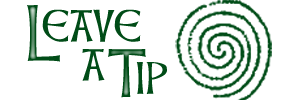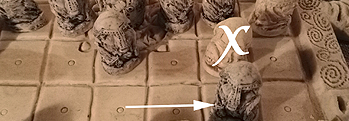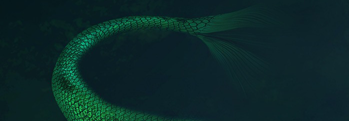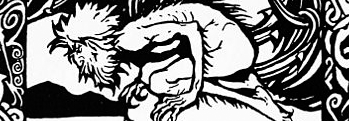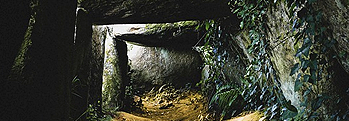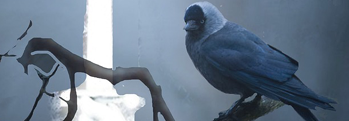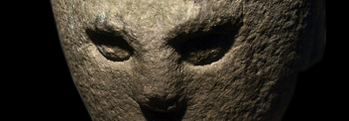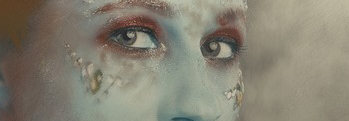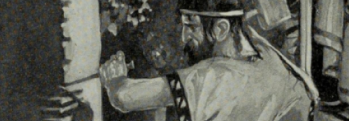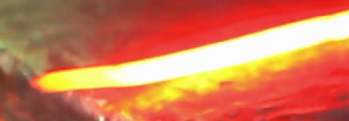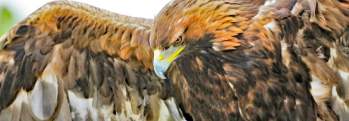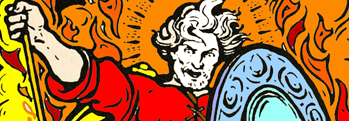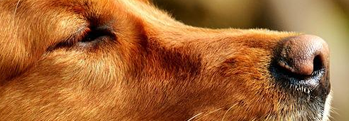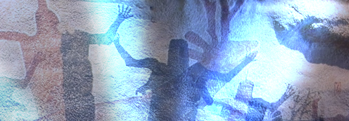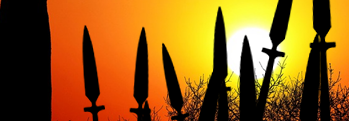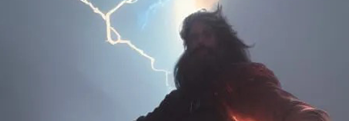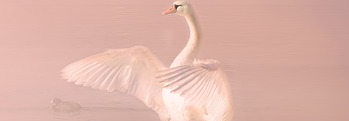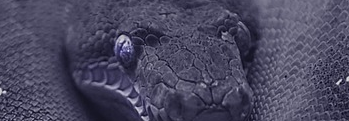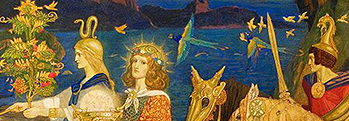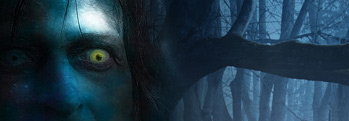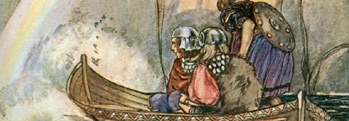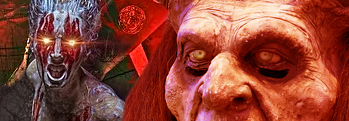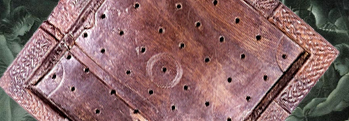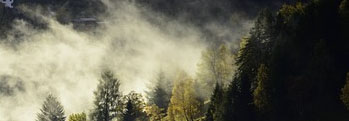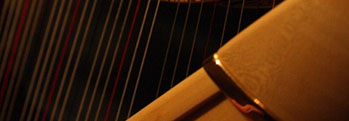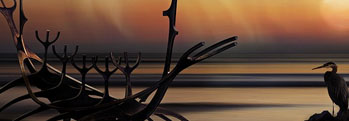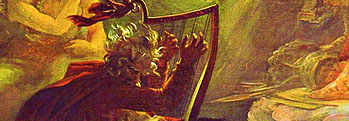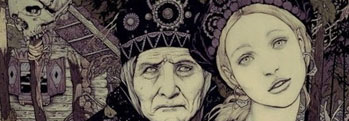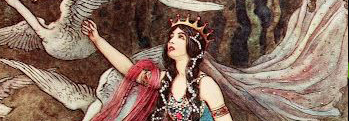Fintan and the Hawk of Achill
Irish and Celtic myths and legends, Irish folklore and Irish fairy tales from the Mythological Cycle
Old stories are often the best stories
 The old stories of Ireland, some of the oldest in the world, tell of great ancients – almost immortals! – whose span of life stretched many thousands of years. Legends tell of their spirits passing from one body to the next, or upon occasion, staying in the one body for millennia, watching the tides of man and beast come and go.
The old stories of Ireland, some of the oldest in the world, tell of great ancients – almost immortals! – whose span of life stretched many thousands of years. Legends tell of their spirits passing from one body to the next, or upon occasion, staying in the one body for millennia, watching the tides of man and beast come and go.
Such a one was Fintan son of Bóchra, which means son of the sea, who was known for his wisdom, a man of magic and the seeing of far distant places and times. He came to Ireland with the first people, accompanying Cessair, she who was the grandchild of Noah. He had eighteen wives and many children.
Through the many centuries he lived, until the time of Fionn Mac Cumhaill, as the light of Christianity was beginning to shine throughout Ireland, and it was then that he went to Achill to sit on the cliff, where he met a hawk who was born at the same time as himself.
Noting the hawk’s elderly appearance, he sat himself upon a seaweedy rock and called out to it in the tongue of the birds, asking it to tell him a tale. The hawk answered that Fintan himself was no spring chicken, and that he hadn’t been young since he had lived in Dun Telara, thousands of years ago!
“Never mind that,” said Fintan, “it’s a greater wonder that I am alive at all! I have seen many sorrowful things in my life, and the death of my son Illan, the most sorrowful of all, these countless years gone. But tell me, how is it that I have never seen you before, oh bird of Achill of the Fian? Why do you stay here?”
The hawk cocked a rheumy eye at him and said, “Why would I not? There is game aplenty, fish and venison to keep my strength up, gentle havens, bright air and warm thickets, and best of all, far from the doings of men is the Isle of Achill! But you must surely have seen more than me, even though I see all from on high?”
Fintan nodded slowly, travelling back through the winding pathways of his memory.
“I was but fifteen years of age before the black flood came and drowned the world, oh what a dreadful day was that! The dark giants wrought their ruin upon us all with their wickedness and sorcery. And afterwards it was given to me by the gods to live five thousand five hundred years more, and the first thousand as you see me today.
“Then,” he asked in curious speculation “how old are you, to be so familiar with my name?”
“Not a year less than yourself have I lived,” replied the hawk, “but tell me more of your life, oh poet and prophet.”
Fintan sighed and settled himself down, continuing
“I was in ruin after the loss of Illann and the rest of my sons, the fall of white-handed Cessair, my wife – all that I had was the barking of the seals for company, which seemed to mock me as I wept. For it was that the gods had changed me into a salmon so I might survive the black deluge of the deeps, and yet the price to pay was watching Labra the pilot and Bith, my own father in law, die.
“Up and down every spring and river in Ireland did I swim, and I came to know them all very well. From the Boyne, to the Bann and the brown Bru, the Suck, the Suir, and the Shannon, the Dael and the Dubh, until I came to the waterfall of the estuary of the Erne.
“There I stayed at Assaroe of the seals, and I tell you I have never felt such a night at the northern wave, not from the begining of the world to its end!” The cold and the ice came to clench the waters in their grip, until there was nothing left to swim in, so I tried to leap through the frozen face of the waterfall.
“I saved myself, it is true, shattering the ice like clear blue glass, but as I fell a hawk stooped from the sky and took the eye clean out of my head! And that helped me not at all, with every other grief I bore.”
The hawk looked at him in unreadable fashion and said “But it was myself who took your eye, oh Fintan of the fresh heart! I am the grey hawk of time, alone in the middle of Achill.”
Angered now, Fintan demanded compensation for being left in gloom, as law and obedience required, but the hawk replied that he had nothing to give, and he would gulp down Fintan’s other eye in one bite if he could!
Fintan pondered this for a while and knew it was but the nature of the beast for which it could give and was due to give no apology, for so it had been made, but still he said
“You sing a harsher song than many a bird, wild one, but hold off on any further meals – since I have the sweeter voice, I will speak further.”
“Five centuries afterwards I swam half blind as a long-sided salmon through lochs, many rivers and in every rich clear-flowing sea. Then I was given the body of an eagle, and a mighty bird I was too. Then I became a stately blue-eyed falcon, and no bird was my match.
“And then the King of the Sun thought it was time for me to take again the shape of a man, for what better shape would suit me? And with that came the weight of years.”
He spoke of the grievous loss of his sons, and the hawk replied that it had taken a hand, a foot or an eye from each of their bodies. Fintan told about how he offered wisdom and counsel to the Tuatha Dé Danann, taking their side against the Fir Bolg, and the hawk spoke of the Battle of Moy Tura.
“As I was in the midst of the carnage I saw beside me an arm, and on each several finger of the fingers a ring of red gold like blood. Its heroic proportions, its vast size, alas for him from whom that limb was severed! Its beauty, its length and its span, ruddy and beautiful were the nails.
“A sleeve of glossy silk and a golden tunic sleeve was around its whole length up to the shoulder. I lifted it up, and it was no small effort, I bore it with me, terrible was the distance, to Druim Ibar of the estuaries. For it was no less than the hand of Nuada that I found there on the battlefield, the High King of the Tuatha De Danann, and it was seven years in my bird's nest!”
They spoke on and Fintan shared much knowledge and lore with the hawk, telling of the tree of life.
“If you eat the fruit of the tree of virtues facing towards the north, an old man who partakes of it will instantly become a youth again. Eat the fruit of this fruiting tree while facing south and you need have no fear of painful disease, so long as the blackthorn lasts.”
On he spoke of his visit to Tara of the flocks, engaging in pleasant conversations with the folk and birds of that place, until the brilliantly-coloured cloaks of the Sidhe surrounded him in one instant, and he had to bid farewell to the men of Fodla.
He met a giant stranger who said he was strong Trefuilngidh Tre-eochair, and that he was travelling from the western bounds of the world, in the setting of the sun. This stranger brought with him a tree of three fruits, the nut and the apple and the blackthorn, which he planted all over Ireland, and none was able to do him harm while he planted.
“I planted the three fruits that came to us for our use – Eo Rossa, the Branch of Mughna Mor, and the old tree of Tortan of heavy hosts. But I weary of singing to you oh hawk, pray tell me some of your own tales, for they must be numerous! Tell me of the bright, smooth, round-topped, beautiful old fort of Tara, for I haven’t been there in an age.”
“Well,” said the hawk “that time was nearer to this than my hatching, but when fair Conchobar walked the earth I had become famous for my beauty and strength. King over the birds of Eriu I was, flying over the hills and glens.”
“Then I happened to spy the slinger of trá baile, the man who was searching all havens, Cú Chulain of the Red Branch. By his treachery, Cu roi, king of Clann Degad fell, and I ate my fill of the blood of his witch blood.
“Then Garbh son of Starn fell to the Hound who fed scald-crows – two eyes of the handsome Greek I ate at the beginning of that good day!
“Also it was often I got flesh and spoils from Naisi who was venomous of weapon, but I did not taste his flesh or blood because of his excellence in fighting. The head of Cet fell to me after his wounding and his struggle, it was for me a desperate mouthful, his eyes were like to choke me.
“I ate, enormous was his size, the body of Monodhar mac Cecht. I found many bodies back to back from the victorious hand of Conall. from the strife he did not flinch so long as he was alive. The rivers used to run bloody from the Culgas (spear) of Conall the Victorious!
The hawk continued in this manner for some time, recounting with relish the various heroes and parts of heroes it had eaten, and I suppose that’s how a hawk would see the world. Then he came at last to the end of Cú Chulainn.
“Cú of the feats didn’t stop until his body was maimed and mangled, his face drenched with blood and so weakened that he was unable to stand, tying himself up by his own entrails to the pillar-stone of the Commor.
“Down I went intending only to eat his eyes, not end his life, for I thought he had already passed away, when he felt my wings upon his face and swiftly jabbed his hero’s dart into my breast! Away I flew, a difficult flight, to Inis Geidh over the furrowed sea, where I drew out of me, painful the effort, the hard tough shaft of the javelin.
“The barb remained in my body, it tortured my heart distressingly, I have never been sound since then, and I do not conceal it, since I am old.”
The the hawk recounted its many victories over other birds, the solitary crane of Moy Leana, the eagle of Druim Brice, the solitary crane of grey Inis Geidh, the two full-fat birds of Leithin, as well as the slender Blackfoot of Sliabh Fuaid.
In its youth in the time of Lugh the hawk had borne back to its nestlings, without effort, the bodies of champions and fighting-heroes. Later, it could carry a year old boar across dales and pastures. By the time of Conn the hundred-battler, it could carry fleet fawn of six months growth. When Cormac mac Art ruled Ireland, a pig or piglet was no great weight to carry. Many-hued Meath on every side of Tara eastwards, wild fawn were pursued.
But now in the time of Niall Nine-Hostager, the hawk had grown mad, for it would grow weary carrying a blackbird.
“And you see, that is why I have come to meet you Fintan,” said the hawk, “for tomorrow I will die, and I fear greatly the fate that awaits me. Perhaps you might ask God to pardon my wrongs and sins?”
“Don’t worry,” Fintan reassured the old bird, “tomorrow you’ll be full of life once again in the heaven of clouds, with the chanting of angels singing sweetly. And I will be there alongside you, for tomorrow I shall also die on that very self same day.”
So they spoke long into the night, sharing stories about times and heroes long past, until sunrise found them lying side by side, dead.
Achill can be found on the map below!
More Stories from the Mythological Cycle
The Irish love music, and it has long been said that the Irish race lived and breathed melodies, liable to burst into song at the drop of a hat. Few realise how far back the Irish musical tradition goes however - at least as far as we know! Some of the earliest musical instruments which have been uncovered date from the Irish Bronze Age, in thos ... [more]
During the Irish bronze age, the working of gold reached heights never before seen or dreamed of. Goldsmiths fashioned the soft, luminous metal into intricate forms resembling cloth, cord, the rising and falling hills of Ireland, and many other striking designs. Among their most famous and beautiful creations were the astonishing gold collars, one ... [more]
The warm, glimmering golden glow of amber, or ómra in Irish, has held deep fascination for people since the Neolithic and probably long before that. Its rich, flowing contours capture and refract the sun and firelight with equal facility, and it may have been one of the first gems worked by human hands. Its beauty has inspired enterprise and ... [more]
This stunning battle-shield, cast from golden-hued shimmering bronze, was originally made during the bronze age. It is one of about two dozen similar shields of varying sizes found across the Irish Isles, and dates back to around 1000 BC. Measuring around 71cm across, it began life as a flat sheet of bronze, which was then hammered over rounded ... [more]
The extraordinary bronze age Irish axehead is remarkable not only for the decorations adorning the axe itself, but also for the carry-pouch or sheath discovered along with it when it was found four meters deep in a peat bog in Brockagh, County Kildare. It is very unusual for any organic material to have survived thousands of years, but the unique c ... [more]
The Lurgan Canoe is one of the earliest boats found in Ireland, dating back four and a half thousand years, made from a single mighty oak tree felled when the first metalworkers began to arrive. This was a time of upheaval, mystery, magic, and wonder, old orders tottering and collapsing, the end of the age of the God-Kings of Ireland with their pon ... [more]
We are delighted to be able to present to you the rules of Fidchell, the Irish game of kings! This game can be purchased, but it's easy to get started and try it out for yourself. All you need is a 7 x 7 board, which can be squares or pins marked out - even on paper - 16 white or attacker pieces, a king piece, and 8 darker-coloured defender pie ... [more]
Times were hard in Ireland not so long ago, and harder yet they were before that – many’s the family was cast out of their houses for being unable to pay their rent! One such was poor Finian O’Toole, the kindly father of nine children who found himself evicted by the cruel English landlord in the parish of Kilmoe. Now it was th ... [more]
There is a tale, one of the oldest stories among the many very ancient stories of Ireland, of a man who returned to life as a man thousands of years after he first walked the earth. His legend was found in an eleventh century manuscript called Lebor na hUidre, which means The Book of Dun Cow, and it was written there by the followers of an early ... [more]
It’s a not uncommon belief that the women of Ireland in the ancient days were quiet and kept to themselves, letting the men do all the great deeds and win all the fame – but nothing could be further from the truth! From that day to this Irish women were and remain wild and fearless, willing to go to lengths as great as any man for victo ... [more]
Of great renown are the feats and deeds of the ancient heroes of Ireland, and still to this day they echo through our legends where such tales are told. But of scarce less fame were the weapons they bore, implements of glory and terror, bound to ancient spirits and clasping lightning within their shimmering length, wielded with scarcely imaginable ... [more]
The Tuatha De Danans By the force of potent spells and wicked magic, And conjurations horrible to hear, Could set the ministers of hell at work, And raise a slaughtered army from the earth, And make them live, and breathe, and fight again. So it was written in Keating's General History of Ireland, considered by many to be the definitive ... [more]
Her name was Clíona or Clíodhna and she was one of the most beautiful women of the Tuatha Dé Danann, that vanished sorcerous race whose legends echo still from one end of Ireland to the other. Some even say she was the most beautiful woman in the world, and she was worshipped as a goddess by the pagans of Ireland who followed t ... [more]
Many are the tales told of Lugh, the mightiest king of that ancient and mystical sorcerer race of Ireland, the Tuatha Dé Danann, but only one is told of his death. Now Lugh, lord of many warriors, had four wives, which back in those days wasn’t too unusual, and their names were Echtach, daughter of white-toothed Dagda, Englec, Ná ... [more]
Just as happens today, people in ancient Ireland had legal disputes and complaints they would bring before their courts, and the judge or king would try to make sense of what had happened and hand down a fair decision. But also just as happens today, there were situations where it was one person’s word against another, or there wasn’ ... [more]
The old stories of Ireland, some of the oldest in the world, tell of great ancients – almost immortals! – whose span of life stretched many thousands of years. Legends tell of their spirits passing from one body to the next, or upon occasion, staying in the one body for millennia, watching the tides of man and beast come and go. Such ... [more]
One of the chiefest and most powerful kings among the mystical Tuatha Dé Dannan was the one called Dagda, or Dagda Mór, which means “of shining skills”. He had other names too, such as Eochu the horseman, Ruad Rofhessa, lord of great knowledge, Dáire the fertile one and Aed, he of the fiery temper. Others yet called ... [more]
The Irish Brehon law codes are said to be the earliest fully developed legal system in Europe, but long before the Brehons were laid down there were earlier laws and all were subject to them, from the lowest to the highest! Women could hold their own property, were not themselves considered property, and could seek an education and improve their ... [more]
No tale of ancient Ireland could be complete without mentioning the Fomorians, dreaded foes of the Tuatha Dé Danann and all who came to conquer Ireland. The meaning of their name is debated even today, although most agree that the first part, fó, means “from below” or “nether” and the latter part means “t ... [more]
Many of the oldest records of Irish mythology and legend, which you might truthfully say are a history of prehistory, tell that the first people to arrive in Ireland were led by the lady Cessair when she fled to this land to escape the coming flood. The idols which had whispered through veils of midnight smoke that Ireland was a land untouched by p ... [more]
Throughout the old stories of Ireland are scattered mentions, and sometimes even descriptions, of some of the spells and rites used by both the Tuatha Dé Danann and those who came after them, the Gaels or Milesians, as they are sometimes known. Tales of these wondrous and mysterious feats of sorcerous skill may seem strange to us, but to the ... [more]
It was a warm and balmy summer's night, heavy with the fragrances of heather and honeysuckle, when Aengus, son of Dagda, awoke to find a beautiful young woman approaching him where he had slept. He was immediately taken with her grace and elegance, and his heart yearned for her, but when he tried to speak, she vanished! He stayed in his bed ... [more]
The river Barrow, like many rivers in Ireland, was given its name in ancient times. Few now know it once had another and very different name however, for it was when Dian Cécht walked the world, the healer of the Tuatha De Danann, that this river was first named! Dian Cécht, whose name meant swift power or swift potion, depending o ... [more]
A thousand years before the Olympic games were founded, the Tuatha De Dannan had arrived in Ireland and defeated the Fir Bolg, establishing their place on the Emerald Isle. The mighty queen Tailtiu had married Eochaid mac Eirc of the Fir Bolg, but he was killed during the invasion of Ireland by the Tuatha, so the leader of the invaders took her for ... [more]
In ancient times the Gaels would hold great festivals at different seasons of the year, such as the Tailteann Games, Tlachtga, Raigne and Lughnasadh, and it was at the beginning of August, every three years, that the festival of Carmun would be held during the festival of Lugh. Mighty were the celebrations held, with the racing of horses and the ... [more]
Long ago it was the time of the Tuatha De Danann in Ireland, and they were troubled by strife from beyond the Emerald Isle and within it. One of their mightiest warriors whose name was Lugh of the Long Hand heard that their demonic enemies from the sea, the Fomorians, had landed at Eas Dara, so he hopped up on Aonbharr, a horse which could gallop a ... [more]
Some of the most ancient Irish myths and legends tell of the Bocanachs and the Bananachs, known to the people of Ireland as fierce spirits of the air that were drawn to scenes of battle and bloodshed. Whenever armies gathered to test their might, the sky overhead would be filled with shrieking demons dancing to the sounds of swords clashing and blo ... [more]
Woven through many Irish stories, myths and legends is the ancient game of Fidchell, which means “wisdom of the wood”. It's said that it was invented by none other than Lugh of the Tuatha De Dannan, and predates chess by many centuries. Fidchell held a central role in the celebrations of Lugh, and at Samhain festivities as well, ... [more]
Well known is the ancient tale of the Children of Lir, and how two of the three of Bodb Dearg's daughters by Oilell of Aran married Lir to keep the peace in Ireland, between the rival chieftains of the Tuatha De Dannan. But less well known perhaps is the story of the daughter of the Bodb and one of her admirers, Cliach the Harpist. Cliach pl ... [more]
After the second battle of Moy Tura, Nuada the High King of the Tuatha De Danann was grievously injured, and as it was the law among their people that a king must be whole of body, Dagda Mór took his place. Mighty Dagda, of whom the ballads are sung, he was called the father of the Tuatha, the lord of knowledge, the many-skilled, th ... [more]
It is in the nature of fairytales and legends passed down from generation to generation that they might sometimes change and shift to fit the lives of the people of the time, and the more mysterious the figure the more legends accrue to it! And so it is with Donn of the Dead, king of the dead at the red tower of the dead, whose three sons cried &ld ... [more]
It was at the dawning of the world when the fair folk walked in broad daylight as bold as you and I, before the coming of the Milesians with their bitter iron blades and earthen ways, it was the time when magic was wrought and druidry had power, when heroes gave battle to gods and the titanic children of Seth still troubled the dreams of Heaven, it ... [more]
The raven has long been an omen of ill-tidings around the world, bearer of bad news and warnings, but in Ireland it was known once as a servant of the fairy Morrigan, or the raven was herself in person! She it was whose name meant the Great or Ghost Queen, from the old words for fear and greatness. Some will tell you earnestly that she was a god ... [more]
Long ago, in the time of the Tuatha Dé Dannan, one of their number became the high king of all Ireland, and his name was Eochaid Ollathair. He was a powerful magician of that sorcerous race, and by his workings he could change the weather and ensure the harvest was plentiful, as well as many other things. His wealth was vast and he was mu ... [more]
It was in the time of legends and heroes, when the Tuatha Dé Dannan had determined to go into their deep halls beneath the hills and mountains of Éireann the green, that the Dagda mór had fallen at the second battle of Moy Tura. With his slaying a new leader had to be elected and that was decided by the Tuatha to be the Red Cro ... [more]
And so it was when dragons still flew and champions walked the earth that the men of the Fir Bolg had lordship over all of Ireland. They had left Ireland centuries before due to the violence and heavy tribute demanded by the Fomorians, travelling far and wide until they came to the distant land of Greece. Although they made agreement and treaty ... [more]


